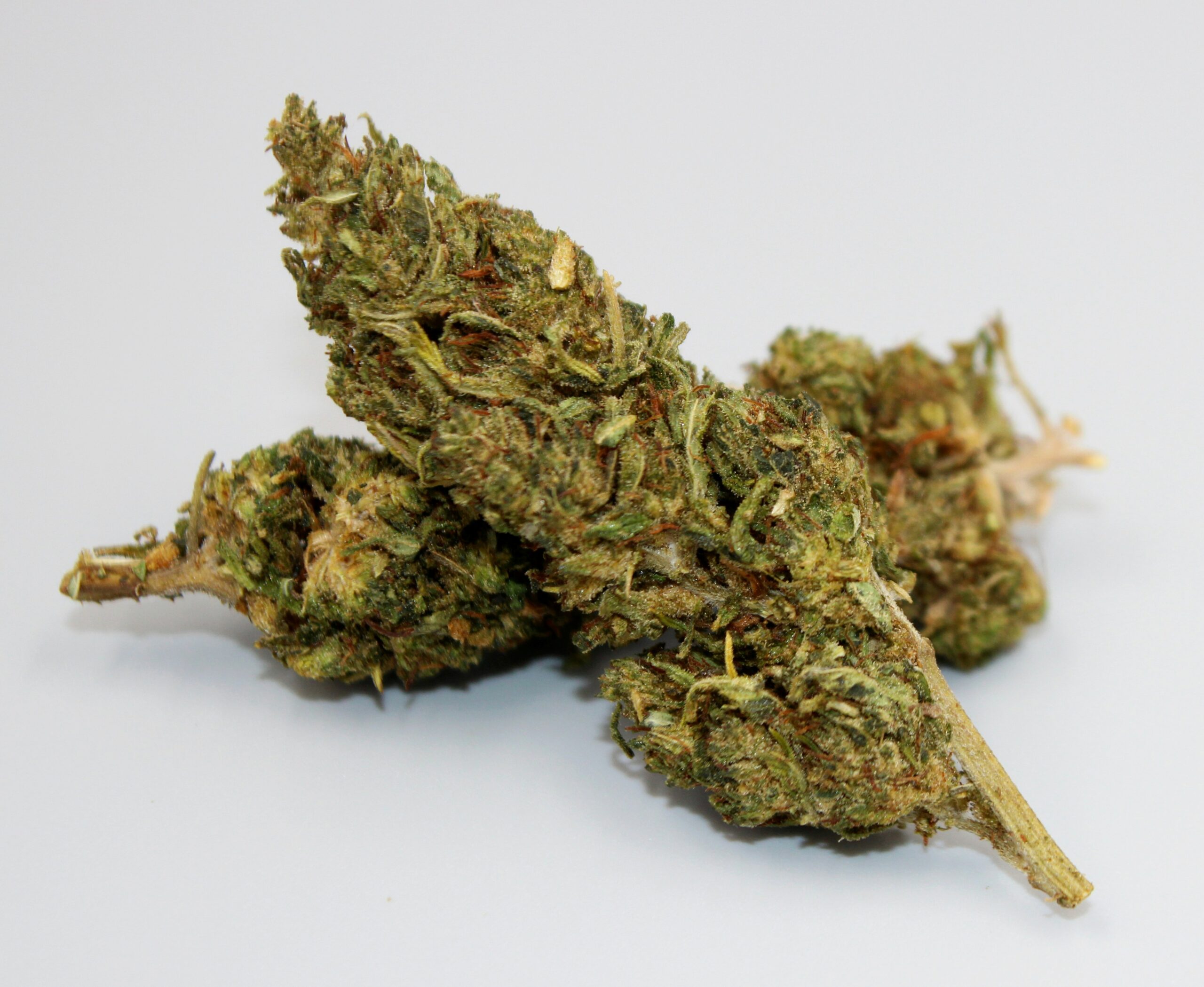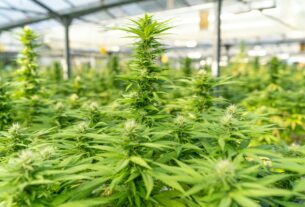What is THCA?
THCA is a leader in THC, discovered in raw and freshly collected cannabis plants. Unlike THC, THCA is non-intoxicating, implying it doesn’t induce the “high” typically related to cannabis usage. When subjected to warm with a procedure called decarboxylation– generally acquired with smoking cigarettes, vaping, or cooking– thca flowers exchanges THC, the psychedelic substance recognized for its blissful outcomes.
The Power of THCA Flowers
While THC controls much of the discussion surrounding cannabis, THCA has been getting acknowledgment for its potential restorative buildings. Research study suggests that THCA may provide a selection of health and wellness and wellness benefits without the psychedelic effects of THC. Some possible advantages of THCA consist of the following:
1. Anti-inflammatory Qualities:
THCA reveals encouraging anti-inflammatory residential properties, making it valuable for managing problems such as joint inflammation, inflammatory digestive system condition (IBD), and numerous other inflammatory disorders. By lowering swelling, THCA might alleviate pain and boost overall well-being.
2. Neuroprotective Influences:
Study researchers recommend that THCA may have neuroprotective homes, providing potential benefits for neurodegenerative problems like Alzheimer’s illness and Parkinson’s problems. By safeguarding neurons from damage and damage, THCA shows promise as a healing rep for keeping the mind healthy.
3. Antiemetic Top qualities:
THCA has been revealed as an antiemetic, suggesting it may aid in decreasing nausea and vomiting. This makes it specifically crucial for people embarking on radiation treatment or experiencing nausea about numerous other medical problems.
4. Antioxidant Benefits:
Like other cannabinoids, THCA has antioxidant buildings, which help fight oxidative stress and mobile damage caused by free-of-charge radicals. Anti-oxidants are necessary to preserve basic wellness and decrease persistent illness risk.
Intake and Availability
THCA-rich items, such as THCA blooms, essences, and casts, are ending up being significantly available in lawful marijuana markets. THCA flowers are collected and refined to safeguard the cannabinoid in its raw kind, guaranteeing consumers can value its potential advantages without the psychoactive outcomes of THC
Intake approaches for THCA flowers vary, with alternatives including smoking cigarettes, vaping, or incorporating them right into edibles and beverages. Some individuals may consume THCA in its raw type by including it in salads or drinks to optimize its prospective wellness benefits.
Understanding THCA and THC
THCA and THC are both cannabinoids, chemical compounds located in the cannabis plant. Nonetheless, they have distinctive buildings and influences due to their varying chemical structures and communications with the endocannabinoid system (ECS).
THCA (tetrahydrocannabinolic acid) is the acidic forerunner to THC. In raw cannabis flowers, THCA is the leading cannabinoid, generally making up around 90% of the total cannabinoid content. Unlike THC, THCA is non-intoxicating, indicating it does not create the psychedelic results normally gotten in touch with cannabis consumption. Instead, THCA is valued for its possible recovery benefits, consisting of anti-inflammatory, neuroprotective, and antiemetic residential or commercial properties.
When cannabis is heated with procedures such as smoking, vaping, or cooking (decarboxylation), THCA experiences a chemical modification, losing a carboxyl group and exchanging THC. This decarboxylation procedure is crucial for turning on the psychoactive houses of marijuana. As a result, heated marijuana products, such as smoked flowers, edibles, and concentrates, include primarily THC instead of THCA.
Differences in Chemical Framework
The chemical structure of THCA and THC differs mostly in their molecular structure. THCA consists of a carboxyl group (COOH) affixed to the particle, which is missing out on THC. This carboxyl team supervises THC’s acidic nature and contributes to its unique properties, including its failure to bind straight to cannabinoid receptors in the ECS.
THCA’s carboxyl team provides it water-soluble and less quickly soaked up by the body than THC. Consequently, eating raw cannabis or THCA-rich products typically causes limited psychoactive effects, if any sort of. In contrast, THC conveniently goes across the blood-brain obstacle, binding to cannabinoid receptors in the brain and central nerves, for that reason, creating a particular bliss and modified understanding of cannabis intoxication.
Taking A Look At THCA Flowers and Mental Health And Wellness
Beyond stress and anxiety and anxiety management, THCA flowers are gathering interest for their possible influence on numerous psychological illnesses. While much more substantial scientific trials are necessitated, unscientific proof recommends that individuals with stress and anxiety and anxiety, stress and anxiety, PTSD, and other state-of-mind problems have reported desirable arise from incorporating THCA-rich marijuana right into their health routines.
THCA’s purported neuroprotective residential or commercial properties also increase fascinating possibilities for conditions like neurodegenerative diseases and cognitive decline associated with aging. While its efficiency continues to be speculative, recurring research studies hold assurance for illuminating THCA’s role in mental and neurological wellness.
Factors to consider for Usage
Before including THCA flowers in your anxiety management or mental wellness regimen, it’s crucial to consider numerous components:
Authenticity and Availability: The legitimacy of marijuana and its derivatives varies by territory. Ensure consistency with regional regulations and laws before obtaining THCA flowers.
Quality and Pureness: Look for credible sources that adhere to rigid quality assurance actions. Organic growing and third-party testing for performance and pollutants are paramount for ensuring product safety and efficacy.
Dose and Administration: With reduced dosages, considerably titrate upwards to evaluate individual response and tolerance. Factors to consider in management strategies, such as breathing, intake, or topical application, are important in optimizing healing outcomes.
Holistic Method: While THCA flowers might provide adjunctive advantages, they need not change traditional treatments or natural techniques for anxiety monitoring and mental wellness. Combining approaches like mindfulness, workout, nutrition, and therapy synergistically enhances complete health.
Verdict
As the rate of interest in marijuana remains to grow, so too does our understanding of its complex chemistry and healing capacity. THCA flowers represent a remarkable facet of cannabis growing and usage, offering special health and health benefits beyond those related to THC alone.
While much more research study is called for to recognize the devices and results of THCA, really early searchings recommend that this cannabinoid holds a pledge as a therapeutic representative for countless health issues. Whether used medicinally or recreationally, THCA flowers provide an alternative option for marijuana customers seeking the possible benefits of cannabinoids without the psychedelic effects of THC.
As legalization initiatives are established and clinical research expands, the duty of THCA in the cannabis landscape is likely to come to be a lot much more prominent. By discovering the power of THCA flowers and accepting the variety of cannabinoids, we open up brand-new chances for wellness and discovery in the world of marijuana.



